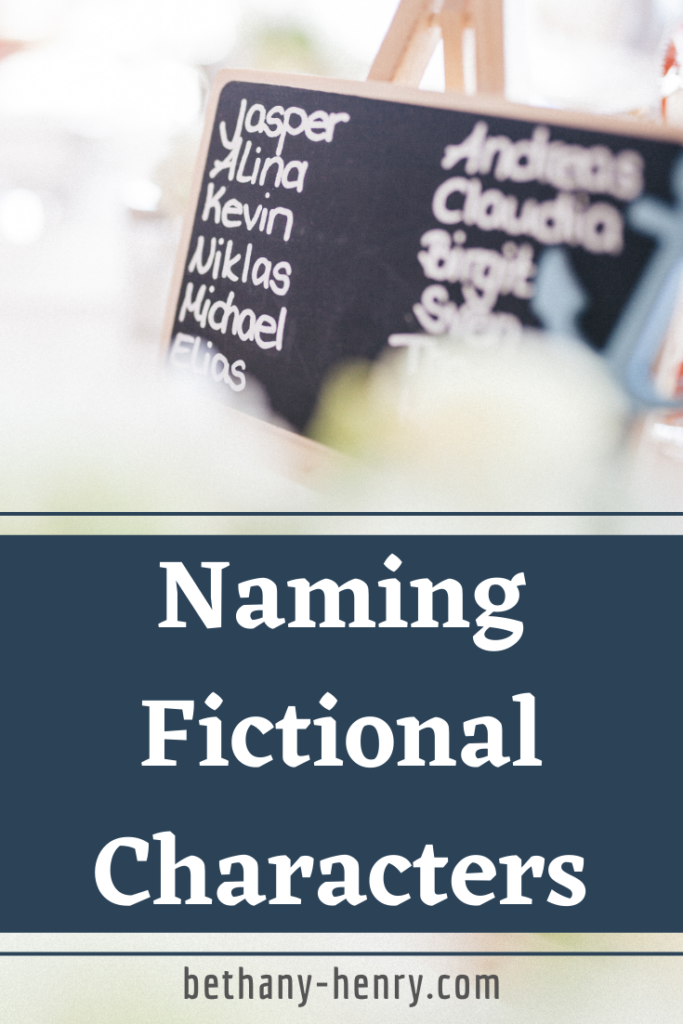As writers we are constantly needing to come up with names for fictional characters. So what’s in a name? Does a rose by any other name really smell as sweet?
Would Frodo Baggins have been the same hobbit if he had been named Kikko Killingham? What about Shannon Lilac or Dimitri Ivanov?
Names have a certain role to play in a story, just like everything else.
They signal certain expectations to the reader and set a certain tone to our story.
Which means when we go about naming our characters we want to keep a few things in mind!

Naming Fictional Characters
1. Know the Name’s Meaning
Every name in our story doesn’t need to have a deep significant meaning. But it can be valuable to know the origins and meaning behind at least our major characters. We can use the meaning in thematic ways or dismiss it entirely, but it’s worth looking into!
A few names and their meanings:
Lucy= light
Mark= warlike
Mei= beautiful
Peter= rock
Sarah= princess
Vlad= to rule
2. Fit Names to Worldbuilding Location and Era
Names from Victorian England will have a different make up than names from modern LA or from ancient Egypt. Your fantasy world may be… well… fantastical, but its culture should have its own language conventions which influence names.
If we have a character named “Sally” show up in Edo Japan, that will not fit with the worldbuilding. Of course, maybe that’s what you’re going for, in which case carry on…
3. Keep Names Different
No reader wants to keep track of who’s who between Dean, Danny, Danika, and Denise.
Pay attention the the sound and the look of your characters and make sure they are easily distinguishable.

4. Be Unique… But Not Too Unique
It’s fun to have unique and cool names for our characters! But we also need to be careful not to overwhelm our readers. Readers can generally only keep track of a few unique names at a time, and if they can’t pronounce a name it gets even harder.
It’s not that we can’t use unique names, we just want to make them approachable (ie: easy to identify/pronounce) and balance that out with names more familiar to the reader.
For further reading:
Baby Names (for inspiration and name origins!)
7 Rules of Picking Names for Fictional Characters – Writers Digest
How To Come Up With A Character Name – Reedsy
10 Tips For Choosing Character Names – Character Names
At the end of the day, naming fictional characters is an art more than a science and we don’t need to feel like these rules need to be followed exactly. If your main character’s name doesn’t *quite* match your worldbuilding, the readers probably won’t even notice.
But they’re good things to keep in mind!
Note: It may hurt a bit or feel weird to change characters’ names partway through the writing process, but sometimes the names from our first drafts aren’t the best they could be. Don’t be afraid to experiment until you find a good fit!
Names may seem complicated at times, but they can also be a lot of fun. If you find yourself getting stumped naming characters, it may be helpful to compile a list of names you like or that fit in with your worldbuilding so that you have something to refer to when needing to name a character.
And no matter what your roses are called, I hope they all smell sweet 🙂




